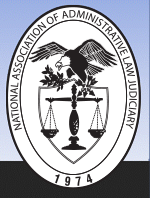First Page
370
Last Page
407
Abstract
Part I of this comment will explore the foundations of the First Amendment, as the Constitution is a framework on which the United States continues to rest. An examination of the events contributing and leading to the drafting of the Constitution will illuminate the rationale behind the tenets put forth by the Founding Fathers. More specifically, this comment will devote emphasis to the Founding Fathers’ objectives regarding the state in relation to religion. This emphasis will provide insight into the perspective of the Founders at the time of drafting the First Amendment. Furthermore, this section will illustrate how the separation of church and state has been maintained from the time that this concept was first promulgated by the Constitution. The scope of this comment will focus on the separation of church and state, specifically with respect to federal taxation. Part II of this comment will refute the position taken by Senator Grassley’s memorandum regarding the exemption of churches by looking at how the government has historically approached the taxation of churches and religious organizations. It will also discuss the important role that commissions and councils have played in the accountability of churches and religious organizations in terms of federal taxation. This comment will specifically reference the inception and functions of the Evangelical Council for Financial Accountability, as well as the Commission on Accountability and Policy for Religious Organizations that followed, in response to Senator Grassley’s memorandum. Part III of this comment will enumerate the ways in which the Internal Revenue service may audit churches and religious organizations. By this enumeration, and by indicating the relative ease with which the Internal Revenue Service can examine the religious community, this article will establish that the current filing regulations concerning churches and religious organizations are adequate. Furthermore, this enumeration will illuminate how the implementation of additional federal tax regulations would threaten to interfere with the free, unhindered exercise of religion. Part IV of this comment will propose an alternative means of regulating churches and religious organizations. While this comment argues for the status quo in terms of the official respective filings of Forms 990 and 1023, it concedes that perhaps there is a middle ground that can be created, allowing for the oversight of church and religious organizations by an entity other than the federal government. This comment will suggest that an administrative framework be provided to councils or commissions that already monitor the religious community, thus allowing the unhindered exercise of religion, and the government to remain free of entanglement. This comment concludes by considering the impact of the proposed regulations.
Recommended Citation
Sophia Benavides,
Words of Wisdom From the Founding Fathers: Why
the Internal Revenue Service Should Let Churches Be,
35 J. Nat’l Ass’n Admin. L. Judiciary
370
(2016)
Available at:
https://digitalcommons.pepperdine.edu/naalj/vol35/iss2/4

